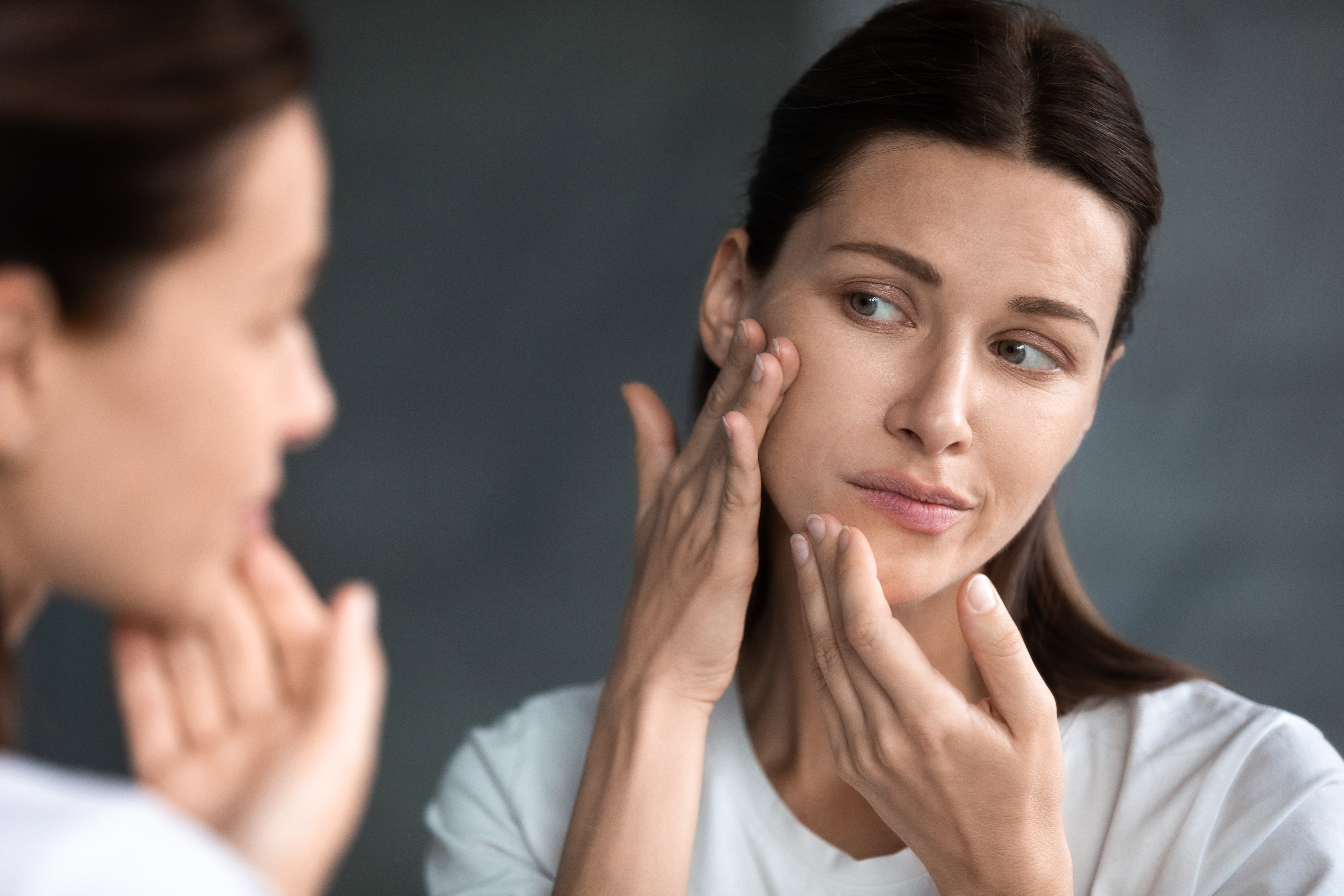
Amaha / / / Differentiating Body Dysmorphic Disorder from General Self-Consciousness
ARTICLE | 3 MIN MINS READ
Differentiating Body Dysmorphic Disorder from General Self-Consciousness
Published on
16th May 2025

Sweta Bothra
M.A, M.Phil

Body Dysmorphic Disorder (BDD) is a mental health condition where individuals become excessively preoccupied with perceived flaws in their appearance. Symptoms include repetitive behaviors, social anxiety, and avoidance of activities. Seeking professional help, such as therapy and medication, is crucial for managing BDD effectively.
D had always been a bit self-conscious about his appearance. He’d worry about minor imperfections, like a pimple or a slightly crooked tooth. However, lately, these concerns had escalated to a point where they were consuming his thoughts and affecting his daily life.
He spent hours scrutinising his reflection, convinced that his nose was too large or his skin too pale. He avoided social situations, fearing judgment and ridicule. Even simple tasks like going to the grocery store became a source of anxiety.
D wasn't sure if he was simply being overly self-conscious or if something more serious was going on. He felt trapped in a cycle of negative thoughts and obsessive behaviours. He wondered if he should seek professional help, but he was hesitant to admit his concerns.
Little did he know that his symptoms aligned with Body Dysmorphic Disorder (BDD), a mental health condition where individuals become preoccupied with perceived flaws in their appearance. These perceived flaws can be minor or nonexistent to others, but they cause significant distress and impairment in the individual's life. It's important to distinguish BDD from general self-consciousness, a common human experience.
Understanding Body Dysmorphic Disorder (BDD)
BDD is characterised by excessive preoccupation with perceived flaws in one's appearance. These perceived flaws can range from skin blemishes and hair thinning to body shape and size. Individuals with BDD often engage in repetitive behaviours, such as excessive grooming, mirror-checking, or seeking reassurance from others.
Symptoms of BDD
- Excessive preoccupation with perceived flaws: Individuals with BDD spend a significant amount of time thinking about their perceived flaws.
- Repetitive behaviours: They may engage in repetitive behaviours like mirror-checking, excessive grooming, or comparing themselves to others.
- Social anxiety: BDD can lead to social anxiety and avoidance of social situations.
- Avoidance of activities: Individuals may avoid activities that could draw attention to their perceived flaws.
- Depression and anxiety: BDD can contribute to depression and anxiety by fostering intense preoccupation with perceived flaws, leading to feelings of worthlessness, shame, and isolation. The constant self-scrutiny and fear of judgment can erode self-esteem, fueling a cycle of emotional distress.
General Self-Consciousness vs. BDD
It's important to differentiate between general self-consciousness and BDD. General self-consciousness is a common human experience, and most people experience it at some point in their lives. However, BDD is a more severe and persistent condition.
Key Differences
General Self-Consciousness
Feature:
• Intensity: Mild to moderate
• Focus: Broad range of concerns
• Impact on daily life: Minimal to moderate
• Repetitive behaviours: Less frequent and less intense
• Insight: Recognises unrealistic concerns
Body Dysmorphic Disorder (BDD)
Feature:
• Intensity: Severe and persistent
• Focus: Specific perceived flaws
• Impact on daily life: Significant impairment
• Repetitive behaviours: Frequent and intense
• Insight: May lack insight or believe concerns are realistic
Seeking Help for BDD
If you or someone you know is experiencing symptoms of BDD, it's important to seek professional help. Early intervention can significantly improve outcomes. Treatment for BDD typically involves a combination of therapy and medication.
Therapy
- Cognitive-behavioural therapy (CBT): CBT can help individuals challenge negative thoughts about their appearance and develop coping strategies.
- Exposure and response prevention (ERP): ERP can help individuals gradually expose themselves to situations that trigger their anxiety and avoid engaging in compulsive behaviours.
Medication
- Antidepressants: Antidepressants, such as selective serotonin reuptake inhibitors (SSRIs), can help reduce symptoms of depression and anxiety associated with BDD.
Self-Help Strategies
While professional help is crucial, there are self-help strategies that can complement treatment:
- Practice self-compassion: Be kind to yourself and avoid self-criticism.
- Challenge negative thoughts: Identify and challenge negative thoughts about your appearance.
- Limit social media use: Social media can often exacerbate body image concerns.
- Develop healthy coping mechanisms: Engage in activities that you enjoy and that promote relaxation.
- Connect with others: Build strong relationships with supportive friends and family.
While general self-consciousness is a common human experience, BDD is a serious mental health condition that can significantly impact an individual's quality of life. If you or someone you know is struggling with BDD, seeking professional help is essential. With appropriate treatment and self-care strategies, individuals with BDD can manage their symptoms and lead fulfilling lives.
Was This Article Helpful?
Yes
No



Build a good life for yourself
with Amaha
Best App
for Good
on Google Play India

Amaha is equipped to provide care and support for individuals experiencing severe psychological distress, including schizophrenia and other psychotic conditions. For those in need of more intensive care and daily support, we are launching an in-patient care facility in Bengaluru soon.
If you or someone you know is experiencing thoughts of self-harm, suicide, or any other life-threatening situation, contact a helpline or go to the nearest hospital or emergency room. Having a close family member or friend with you for support can be invaluable during this time.
For emergency mental health support, please call the national Tele MANAS helpline at 1-800 891 4416.